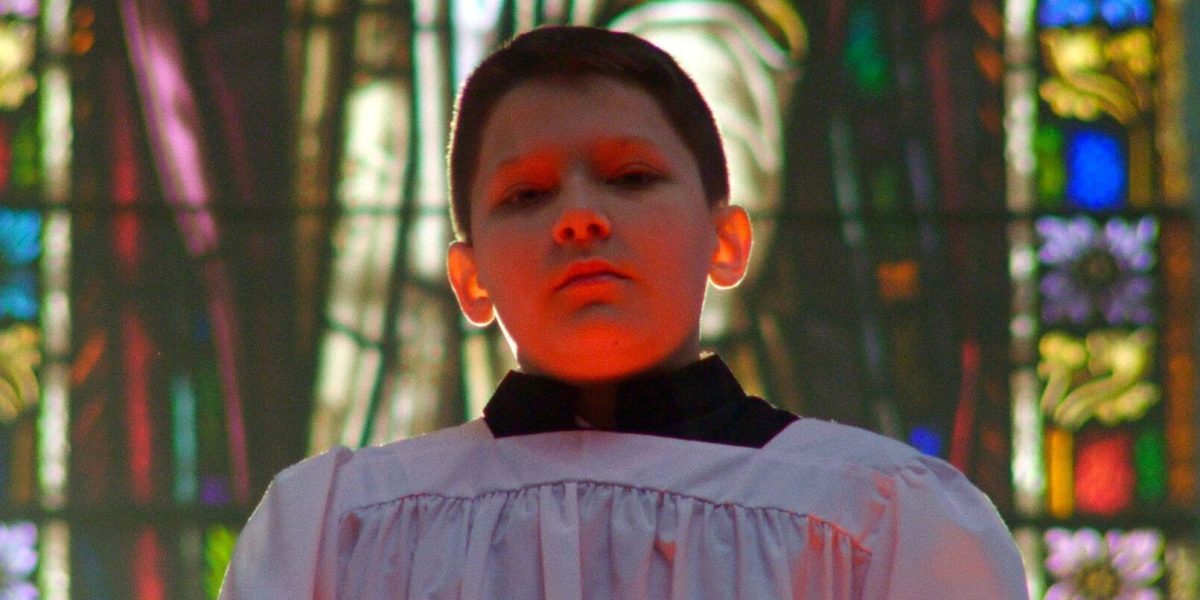It begins with a press conference wherein Michael Sandridge, Tom Viviano, and Mike Foreman—all survivors of abuse—discuss how the Catholic Church in Kansas allowed priests to groom and assault them. It’s an obviously tense scene, in large part because of how the Church has engaged in a coordinated cover-up spanning decades, moving pedophiles around to deflect and confuse while simultaneously expanding the number of their victims. Foreman is justifiably enraged as he incredulously scoffs at the fact that the establishment has propped itself upon the salvation of statutes of limitations rather than the empathetic, Christian principles dictated via confession. Those in power would rather hide and lie than admit their complicity while sanctimoniously asking us to believe they’re God’s chosen few.
Thus it’s no surprise to learn director Robert Greene approached the trio’s mutual lawyer, Rebecca Randles, about the potential of doing this movie, Procession, on them. In recent years Greene has made a name for himself with a unique sensibility for merging documentary and reenactment to get closer to truths neither could reach by themselves. With the help of Monica Phinney, a professional drama therapist, Greene convinced Sandridge, Viviano, Foreman, Ed Gavagan, Dan Laurine, and Joe Eldred into capturing what would become a three-year process of confronting their respective nightmares via the catharsis afforded by transferring pain into the art of writing short films depicting its source. Through each other’s support, these six men band together to search for healing.
It is immensely effective. I haven’t been so invested and in awe of a documentary since 2017’s The Work. Because this isn’t just about the writing and filming of vignettes meant to lift heavy burdens that have been crushing them since adolescence—it’s about the camaraderie of being around people who not only believe them, but know first-hand the effects of what happened. That level of kinship is crucial to their willingness to be completely vulnerable, sans judgement, and to push themselves places they would never have felt comfortable going alone. Viviano, for example, still awaits his court date and as such is legally unable to tell his truth in public. Even so, he volunteered himself to his new “brothers” to facilitate theirs.
They all do. Laurine is a location scout who took point finding suitable sites for reenactments. While he’s surely had to visit churches throughout his career, doing so for this purpose proves a lot more meaningful and emotional. And he takes things even further when asked to search for the actual settings of some of these men’s assaults. Laurine and Sandridge—who can no longer revisit his own horror due to the building being torn down—positioned themselves as leaders willing to advocate for others who psychologically couldn’t do so themselves. Why? Because they know that fear. What they do for Eldred to find the lake house from his nightmares is something Laurine’s brain can’t quite do for himself (and we’ll watch him try).
The result sees a thoughtfully, impactfully cut work (Greene also serves as editor) moving between process and finished product in contextually relevant, heartfelt ways. The former sees the men during their day-to-day, hashing out material and rehearsing, each struggling to decide what incidents will help soothe their present as well as what won’t; some must exorcise their demons as others merely seek to confront them. And the latter captures each in performance. Viviano becomes the de facto priest in most sequences, with Sandridge donning clerical garb when needed. They become the men that abused whoever’s turn it is to lay their soul bare, while young Terrick Trobough performs their youthful selves as vessel, memory, and sounding board alike by bravely giving life to their pasts.
Trobough’s part in this exercise cannot be discounted. He’s willing to see the role as a job that allows him to deliver what’s needed without (hopefully) being affected by the weight of the subject matter, and he supplies a physical representation of that which many have avoided. Eldred speaks often about his inability to “talk” to his former self through letter; no one could blame him for fearing what doing so might dredge up. Having Trobough there as a stand-in, however, lets him (and Foreman, Laurine, and the others) get out of their own heads to create a concrete division between orator and listener. They can finally see themselves outside themselves and reconcile the duality of their fractured identities for necessary healing.
It’s a revelatory experience for the men involved, and surely anyone who has endured similar tragedies. Just watching them meet for the first time and share their stories proves as much, considering how strong a bond is formed. Whether Sandridge and Gavagan acting like they’ve known each other for years or Eldred and Laurine realizing their tales were almost identical—despite taking place at two different churches / lakes—creates a level of understanding they may have never had before. Because while they dive into their own pasts to dredge up their nightmares, the other five are always by their side with active support. This is art therapy as well as group therapy. It’s trust, candor, and belief. They’re taking back control of their lives together.
Procession opens in limited release on November 12 before hitting Netflix on November 19.

